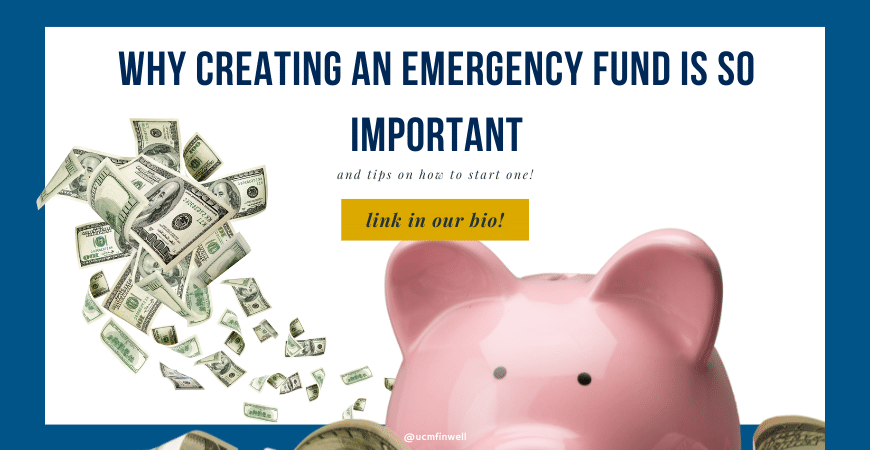
So what exactly is an emergency fund? An emergency fund is a fund where you allocate money to cover any unexpected emergencies without having to rely on credit cards or loans. It is a resource for avoiding debt and it can reduce financial stress knowing that you are covered in an emergency.
How much to save?
The amount of your emergency fund will vary depending on your income, and monthly costs. Most financial experts suggest saving up to 3-6 months to cover living expenses. It includes fixed expenses such as rent, utilities, debts, and food. The amount may be intimidating, but the idea is to put aside an amount that you are comfortable with to build that goal.
Where should you keep your money?
Having easy access to your emergency fund is essential for true emergencies. This means creating a separate savings account just for your emergency fund. That can be through savings and money market accounts. Savings accounts are great for when you want to put away your money, but still have easy access to it. You are able to transfer money seamlessly between checking and savings accounts with some restrictions depending on your bank. Money market accounts are similar to savings accounts and generally have a slightly higher interest rate. They also have a higher minimum balance and deposit requirements.
While looking for an account to incorporate your savings, keep in mind the interest rate that you will be getting and the restrictions that come along with any savings account.
When should you use your emergency fund?
A financial emergency is caused by an event that can be issued with an unexpected expense. Below are common reasons to use your emergency fund:
-
Job loss: Employers lay off workers and without an income, it will be difficult to be able to meet your living expenses. Having an emergency fund can rescue you from financial stress. If you are seeking a new job, you are able to use the fund to help pay bills.
-
Medical, dental expenses, or pet care: Unforeseen medical expenses can cause serious debt. You have the option to use the funds from your emergency fund to cover their care.
-
Car repairs: Owning a car comes with repairs that will be needed along with the vehicle’s age. Tapping into your emergency fund to cover unexpected major repairs can be your safety net.
-
Technology replacement: Your coffee spilled onto your computer and you need the device for work. Your emergency fund may cover the expenses or replacement of your computer since it is needed for work.
Facing any similar reasons or situations, don’t hesitate to use them when you need it. Remember that the point of an emergency fund is to keep you out of debt in times of need. Saving up for an emergency fund requires you to be intentional, focused, and to live below your means. It’s always smart to put your money aside for that rainy day.
Tip: Create a budget, set a savings goal for your emergency fund, and if necessary try to cut off flexible expenses (e.g. dining out, monthly subscriptions, entertainment, and many more)
About the Author:
Kenya Castillo
Bobcat Financial Coach
Kenya is currently a fourth-year majoring in Management and Business Economics at the University of California, Merced. Read more about her here!









